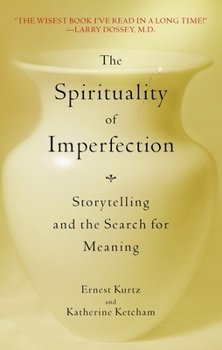Published in the Herald-Zeitung, June 27, 2025
Lately my wife and I have returned to a series we watched decades ago: All in the Family, starring Carroll O’Connor, Jean Stapleton, Sally Struthers and Rob Reiner, which ran for nine seasons (1971-79). While it is always comic in presentation, each episode takes on a cultural shift or exposes an issue like racism, sexism, women in the workplace, scammers, arrogance, or rigid ideological bigotry.
Archie, the often-unconscious patriarch, blames his sweet and loving wife, Edith, for anything and everything that goes awry. She often fails to measure up to his despotic and intolerant standards.
Even when he commits outrageous blunders, he quickly discovers a way to twist it into Edith’s failings as a wife, mother or her own person. Yet even though his belittling responses are repetitious through each show, Edith rises above it all through her feelings of compassion for him, whom she loves dearly.
Sandy and I have asked ourselves: why is it that some individuals, even nations, default to blaming others, when so often the origin of the prickly disagreement emanates from the blaming nation?
Closer to home, I ask myself where the impulse to blame others—a family member I love, a person in traffic, indeed any situation where I find the knee-jerk response to blame someone else for something I brought on and nursed mightily?
Is this ancient impulse in our shared humanity a yearning to make life conform to my version of it? Is blaming others our futile desire—even obsession—to assume what is, is imperfect and needs to be made “right”?
Finally, might there be an alternative way of thinking that insists on abundant courage to reflect what is imperfect in us?
In Buddhist writer, Pema Chodron’s best-selling book, When Things Fall Apart: Heart Advice for Difficult Times (2000), which I’m rereading, she offers this insight: “We habitually erect a barrier called blame that keeps us from communicating genuinely with others, and we fortify it with our concepts of who’s right and who’s wrong.”
What is assumed here is that these two choices are all we must choose from when we blame, which, she suggests, “is a way in which we solidify ourselves.” We gather firm ground beneath our feet through blaming.
On the practical level, blaming the other has reached the level of a contact sport, but it hardly follows a sports code where the opposition is treated with integrity.
Blaming has in many cases become a vicious attack on those who think or feel differently than us, and how blame paralyzes both positions, right and wrong. Feeling that we must be right at all costs can quickly erupt into anger, rage, violence and even death of the other.
Blame is now used more frequently to assassinate others, both literally and figuratively. So many individuals today grieve for having been labelled “to blame.”
Chodron introduces a third option: “the middle way.” Attempting this way involves not hanging on to our crafted version so tightly. “It involves keeping our hearts and minds open to entertain the idea that when we make things wrong, we do it. . .to obtain some kind of good on society.”
Yet blame often creates an enemy out of another’s beliefs that rub abrasively against our own. The middle way allows the option for the other to be partly right, partly wrong; the real point here is that they are allowed to be more fully the person that is more like us than an alien.


















